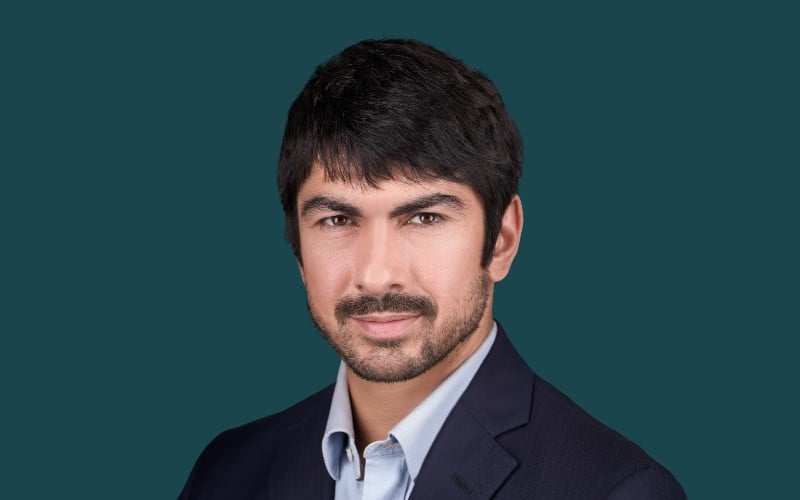What were you doing aged 15? I personally was kept busy with football, videogames… and a great deal of schoolwork.
Andrew Butt, like me, began secondary school in 1992. But while I was busy preparing for GCSEs, his focus was altogether elsewhere.
“I started my first business at the age of 14, building websites, registering domain names and hosting websites,” he tells TechBlast. “I left school at 15 to focus on the business full-time – and compressed five days per week of education into four hours on a Saturday morning!”
As I spent my weekends reopening cuts on my knees on muddy football pitches, Butt was literally taking off at a helicopter flying school. It is where he met future business partner Denys Shortt, who is now an OBE.
“I helped them at weekends with their IT and learned about all aspects of running a small business,” he explains. “Denys was already a successful entrepreneur and learning to fly.
“I got my helicopter licence on the day of my 17th birthday, having done all my solo flying age 16. Learning to fly, and the people I met while doing so, have had a huge positive impact on my journey so far.
“The owners of the flying school, Mike and Mary Smith, looked after me extremely well and taught me a lot. As a child, I had wanted to be an airline pilot, and they said: ‘Stick to flying as a hobby and make computing a career!’
“That’s played out fairly well so far, and I greatly appreciate the advice.”
Private equity exit
He founded a B2B SaaS business with Shortt, Enable Infomatrix, which served enterprise customers with software solutions for health & safety, performance measurement and property management. Having sold that to Sovereign Capital private equity in 2010, he and school friend David Hunt went to work with Shortt at DCS Group.
“It had become the largest health and beauty products distributor in the UK. They had challenges in tracking and ensuring collection of all rebates that were due to them, so we built a software solution to solve that,” says Butt.
“This solution solved their needs – and the needs of the industry – so well that word spread. As we signed up more distributors, we realised the need for collaboration. And that’s really where Enable took root.”
Enable helps manufacturers, distributors and retailers take control of their rebate programmes and turn them into an engine for growth.
Starting with finance and commercial teams, Enable helps them better manage rebate complexity and optimise sales and profit with automated real-time data and insights, accurate forecasting, and stronger cross-functional alignment.
This lets the teams — and everyone in the business — know exactly where they are with rebates internally and across the supply chain.
Enable then creates a pathway for businesses to reach out externally to suppliers and customers, driving purchasing behaviour through one collaborative place to author, agree upon, execute on, and track the progress of deals.
“We started Enable with a simple premise: trading partners should be able work together without friction, without data silos, without agreements that can’t be found,” explains Butt.

Shakespeare & Silicon Valley
Butt, who grew up in Coventry, headquartered the new business in nearby Stratford-upon-Avon, a town famous for Shakespeare but not perhaps its tech scene.
“There’s a lot of good in Stratford-upon-Avon!” Butt counters. “It’s in the centre of England and is a hub of distribution and has great universities in and around it. So while it’s not the first place you’d think of for a startup, it certainly works well for us.
“I’ve known others who have started and built tech companies in Stratford-upon-Avon and enjoy seeing their successes. But certainly, it has a long way to go in terms of a tech ecosystem when compared to San Francisco.”
As the company grew rapidly in the US as well as the UK, Butt realised a North American presence was critical. “I moved to San Francisco to be at the heart of the tech scene and started to build a team here,” he says.
‘The Army was my life – now it’s making me as an entrepreneur’
He would ultimately move the corporate HQ to Silicon Valley, which has helped Enable to raise $156m in the last two years – $94m of it Series C financing announced today.
“The UK was where we started, and we are definitely continuing to grow there. Our engineering, product, IT, finance, customer success and sales teams all have a strong presence in Stratford-upon-Avon,” says Butt.
“All of these have grown rapidly this year and will continue to grow with this funding.”
The company began the year with 212 employees across its global offices. It now has 400 in Stratford, the US West Coast, Toronto in Canada and Australia. The majority of employees are in the UK.
Advice for founders
So what one piece of advice would he offer a startup founder looking to grow?
“Always talk with your customers, those who you’d like to be your customers, those that look like your customers, or those that are around them,” he advises. “I aim to meet new people every day.
“Some of this happens naturally when helping to sell the value of Enable, and when I’m meeting with customers, there’s almost always a new face in the room. Meeting new people in general can be very helpful to understanding your market, your fit, and what other problems you might be able to solve.
“So think of investors, customers, other founders and CEOs, thought leaders, and yes, prospects. I’ve experienced the most success in the least likely connections. It’s serendipity, and it’s fuelled a lot of Enable’s success.”

